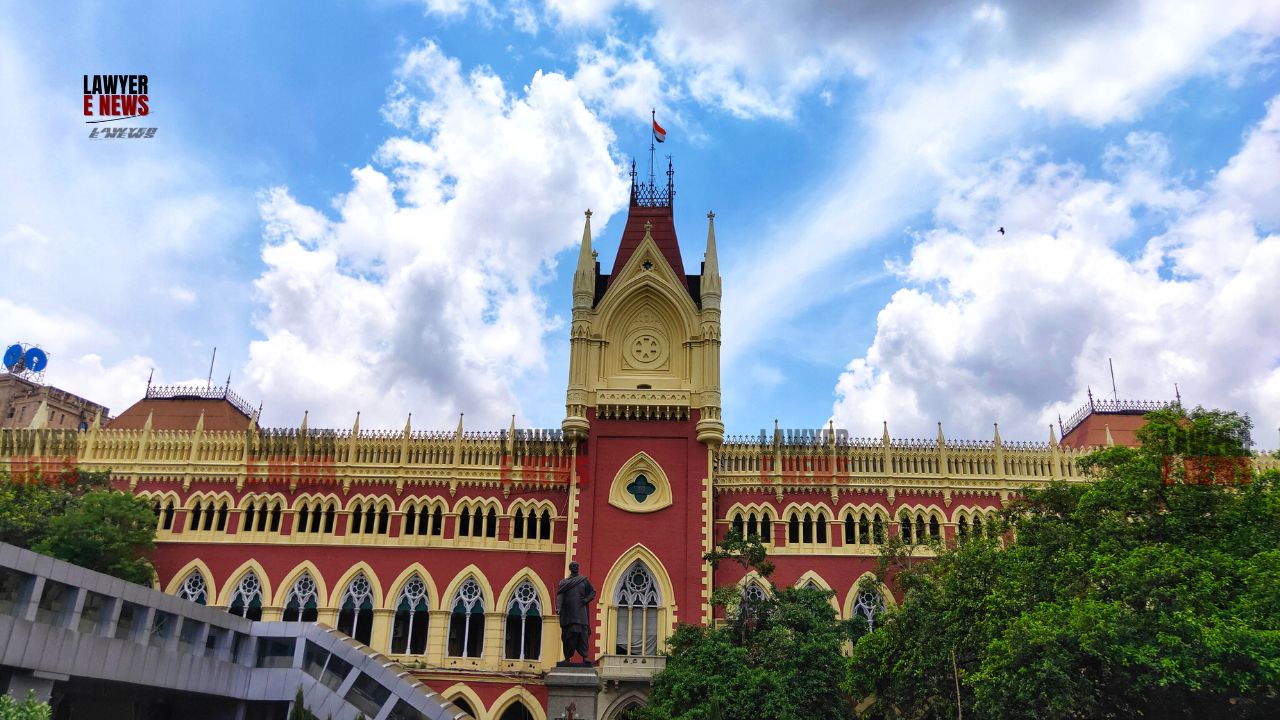-
by Admin
15 February 2026 5:35 AM



In an important judgement, the Calcutta High Court in Sibabrata Dutta & Anr. vs. The Oriental Insurance Company Limited & Anr. directed the insurance company to pay compensation in a motor accident case, despite the cancellation of the policy due to a dishonored cheque. The court also granted the insurer the right to recover the amount from the vehicle's owner, underscoring the principle of 'pay and recover' to ensure just compensation.
The case arose from a tragic accident on August 13, 2003, when the victim, Minati Dutta, suffered fatal injuries due to the rash and negligent driving of a tourist bus. The deceased was 57 years old and employed at the Mathabhanga S.D.O. office in Cooch Behar, earning a salary of ₹12,981 per month. The claimants, her legal heirs, sought compensation under Section 166 of the Motor Vehicles Act, 1988.
The insurance company, Oriental Insurance, contested the claim, arguing that the policy had been canceled before the accident due to a dishonored premium cheque. They asserted that they had duly informed the vehicle owner about the policy cancellation. However, the claimants argued that they were not notified about the cancellation before the accident.
The central issue was whether the insurance company was liable to pay compensation when the insurance policy was canceled due to a dishonored cheque, and whether the company had sufficiently informed the insured about the cancellation before the accident occurred. The High Court referred to the Supreme Court's ruling in United India Insurance Company Ltd. vs. Laxmamma & Ors., which held that the insurer's liability persists unless the policy cancellation is communicated to the insured before the accident.
Justice Shampa Dutt (Paul) noted:
"In the present case admittedly there is no proof that the 'intimation of such cancellation had reached the insured before the accident.' Thus the Insurance Company... is liable to pay the compensation in this case as the intimation of such cancellation did not reach the insured before the accident."
The court determined that the insurance company failed to prove that it had informed the insured about the policy cancellation before the accident. As a result, the company was held liable to pay the compensation. The court also upheld the principle of 'pay and recover,' allowing the insurance company to recover the paid compensation from the vehicle's owner through due legal process. The Supreme Court's judgment in Balu Krishna Chavan vs. The Reliance General Insurance Company Ltd. was cited to support this principle.
The Calcutta High Court set aside the Motor Accident Claims Tribunal's previous ruling that had dismissed the claim on jurisdictional grounds. It ordered Oriental Insurance Company to pay ₹11,49,719 along with 6% interest from the date of the claim application. The insurer was granted the right to recover the amount from the vehicle's owner. This judgment reinforces the obligation of insurance companies to provide compensation even when the policy is canceled, provided the insured was not informed before the incident.
Date of Decision: September 13, 2024
Sibabrata Dutta & Anr. vs. The Oriental Insurance Company Limited & Anr.
